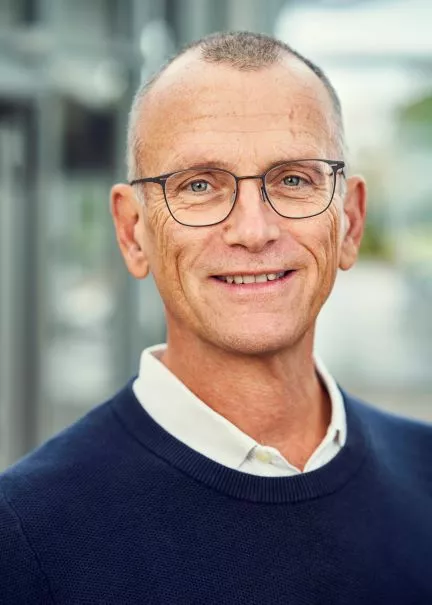Hervé Corvellec on “flipped applications”
Hervé Corvellec is professor of business administration at the Department of Service Management, where he is an expert in the circular economy, among other areas.
Is there any type of collaboration in which you have been involved and with which you are particularly pleased?
– I have been involved a couple of times in something I call “flipped applications”, which is when a company, organisation or public authority is the main applicant and I am a co-applicant as a researcher. A particularly successful example of this was when I joined up with a company that aims to establish a circular business model for illuminated signs, for example by renting them out instead of selling them. The company, which wanted to improve in terms of the circular economy, made an application to Vinnova.
In what way was this particularly successful?
– We had a mutual trust and I got a unique opportunity to sit as an embedded observer at project meetings and meetings with the reference customers. This allowed the research to be based more on observation and not just interviews. For its part, the company gained some of my expertise on the circular economy, and I know they took on board that knowledge.
– It was not only a good way to work together, however, but also a very effective approach to attracting funding for both parties. When distributing grants, Vinnova ideally wants someone from the business community to be the main applicant as this guarantees that the money will really benefit business. We researchers have a lot of experience of how to write an application and my knowledge in this area came in useful.
– Another advantage of being a co-applicant instead of a main applicant is that it means less administration for the University.
Can you see any problems with this type of close collaboration with a company?
– Problems can arise if the other party does not respect your role as a researcher and wants to muzzle you. I have been in a situation where the other party demanded confidentiality. It was resolved, but the legal process can be complicated and help from the University's lawyers is needed. That help is extremely important and this is an area in which I think the University needs to improve.
– There could also be problems if you are perceived to be a consultant and begin to see yourself as such. This has not been a problem for me in practice, but it is something you must always keep in mind.
What was the result of your collaboration with the sign company?
– In addition to being a fun and instructive way of working, the project resulted in scholarly and pedagogical publications, media participation and other public appearances, new project funds and academic networking.
And for the company?
– The company is currently working on sustainable circular signs that reuse or recycle materials.
Contact
Hervé Corvellec
herve [dot] corvellec [at] ism [dot] lu [dot] se (herve[dot]corvellec[at]ism[dot]lu[dot]se)
+46 42 35 66 03


